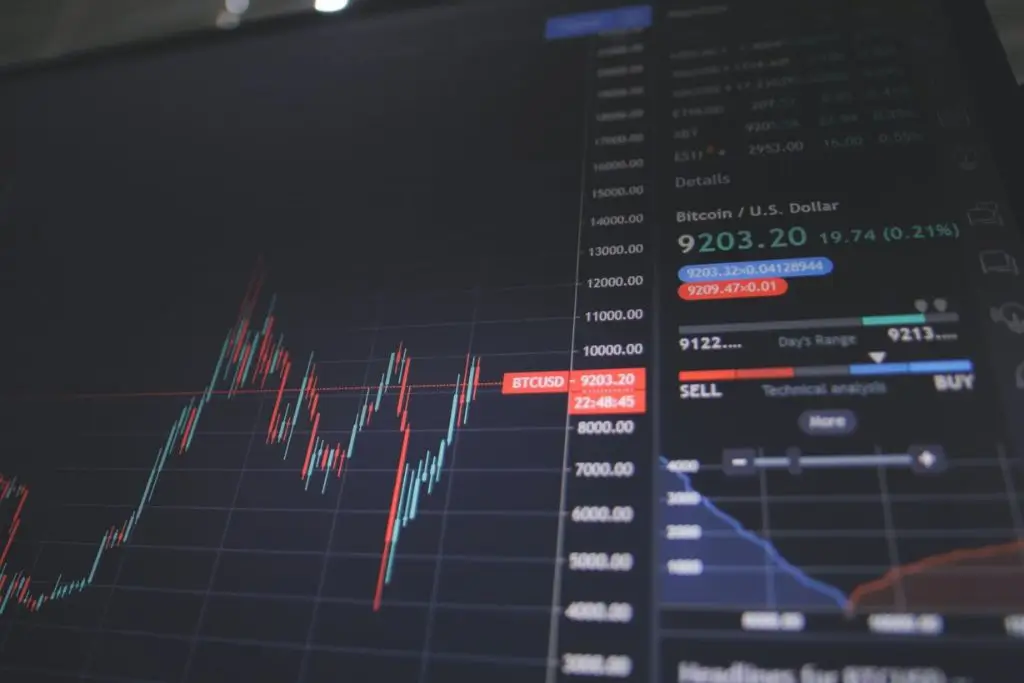Find out what ETFs are, why they are becoming increasingly popular in the financial market and how to invest in them.
Exchange-Traded Funds (ETFs) represent a revolutionary innovation in the investment world, offering an efficient and affordable way to access a wide variety of financial assets. In simple terms, an ETF can be understood as a basket of investments that replicates the composition of a sector, index, commodity or any other underlying asset.
These investment vehicles, traded on the stock exchange, provide investors with a convenient way to diversify their portfolios and seek returns in line with certain benchmarks or investment strategies.
To better understand how an ETF works, we can make an analogy with a sports team. Just like in a football team, where each player plays a specific role in order to achieve victory, an ETF is made up of a variety of financial assets, each contributing in a unique way to the fund's overall performance.
This diversification allows investors to reduce the specific risk of each asset, while seeking to achieve the ETF's overall objective, which may be to equal or exceed the profitability of a benchmark index.
By investing in an ETF, market participants have the opportunity to gain exposure to a wide range of assets, without the need to buy each one individually. This provides greater flexibility and efficiency compared to buying shares or other assets outright.
In addition, ETFs are traded on the stock exchange, which means that investors can buy and sell their holdings throughout the day, just as they would with individual shares, providing additional liquidity and transparency to the market.
The popularity of ETFs has grown significantly in recent years as more investors recognise the benefits offered by these investment vehicles.
With an ever-increasing variety of ETFs available on the market, covering different sectors, geographical regions and investment strategies, investors have the ability to build diversified portfolios in line with their financial objectives and risk tolerance.
However, despite their popularity and benefits, ETFs also present challenges and important considerations that investors should take into account.
From understanding the fund's composition and strategy to considering the costs associated with maintaining it, it is essential to carry out a careful analysis before investing in ETFs.
What are the types of ETF?
There are various types of ETFs available on the market. These include:
- Index ETF: seeks to replicate an index (Ibovespa, S&P500, Nasdaq)
- Currency ETF: seeks to replicate the performance of a particular foreign currency (dollar, euro, pound sterling, etc.)
- Commodities ETF: seeks to replicate the performance of a commodity (gold, silver, oil, corn, coffee, etc.)
- Sector ETF: seeks to provide capital exposure to a particular sector, not necessarily to replicate performance (technology, energy, banking, etc.)
In the United States, there are 7062 ETFs, according to the website statista.com. In Brazil, the number of ETFs listed on the stock exchange is smaller: 36 (see the list here).
Advantages and disadvantages of investing in ETFs
As with any investmentYou should always consider the pros and cons. Valor e Capital is here to help you with your decisions! Let's get to the points:
Advantages:
- Ease of negotiation: you can buy or sell your shares at any time of the day, just as you would with a share
- Access to different assets in a single place: diversification is what makes an ETF so attractive in the eyes of investors. Because ETFs are made up of different assets, they allow investors to diversify their portfolios without having to buy these assets separately
- Transparency: the investor has access to the composition of the ETF, knowing exactly where and in what proportion their funds are invested
Disadvantages:
- Lack of liquidity: depending on the ETF chosen, it may happen that the investor ends up buying at a higher price than the ETF is worth, or selling at a lower price than desired, due to the fact that few people are trading the ETF shares
- Taxation: Unlike shares, ETFs are taxed in the same way as traditional investment funds. This means that the investor will be taxed at 15% on the capital gain, while in shares there is a tax exemption for sales of up to 20,000 reais.
- Volatility: Like shares, the vast majority of ETFs are geared towards variable income. It's up to the investor to know if they are prepared for the fluctuations in the value of the shares
How to invest in ETFs?
Simple: just open an account with one of the many stock brokers in Brazil and/or the United States. Unsure which broker to choose to start investing in ETFs? We've written an article comparing the biggest brokers on the market.
Which ETF should I choose?
Everything will depend on your type of investor and the strategies you want to follow. Once you have clearly defined your objectives, ETFs will help you to be exposed to a wide range of asset classes and markets. In other words, ETFs give you the flexibility to be the kind of investor you want to be.
Did you like our content? Share it with your family and friends who are entering the world of investments and help more people with quality information! Together, let's demystify the stock market and the financial world in search of a promising future for Brazil.
Attention!
Valor e Capital is a purely informative site aimed at enriching our users with financial content, we are not linked to any company and we do not make suggestions for buying or selling assets, do not share personal information in the comments.













